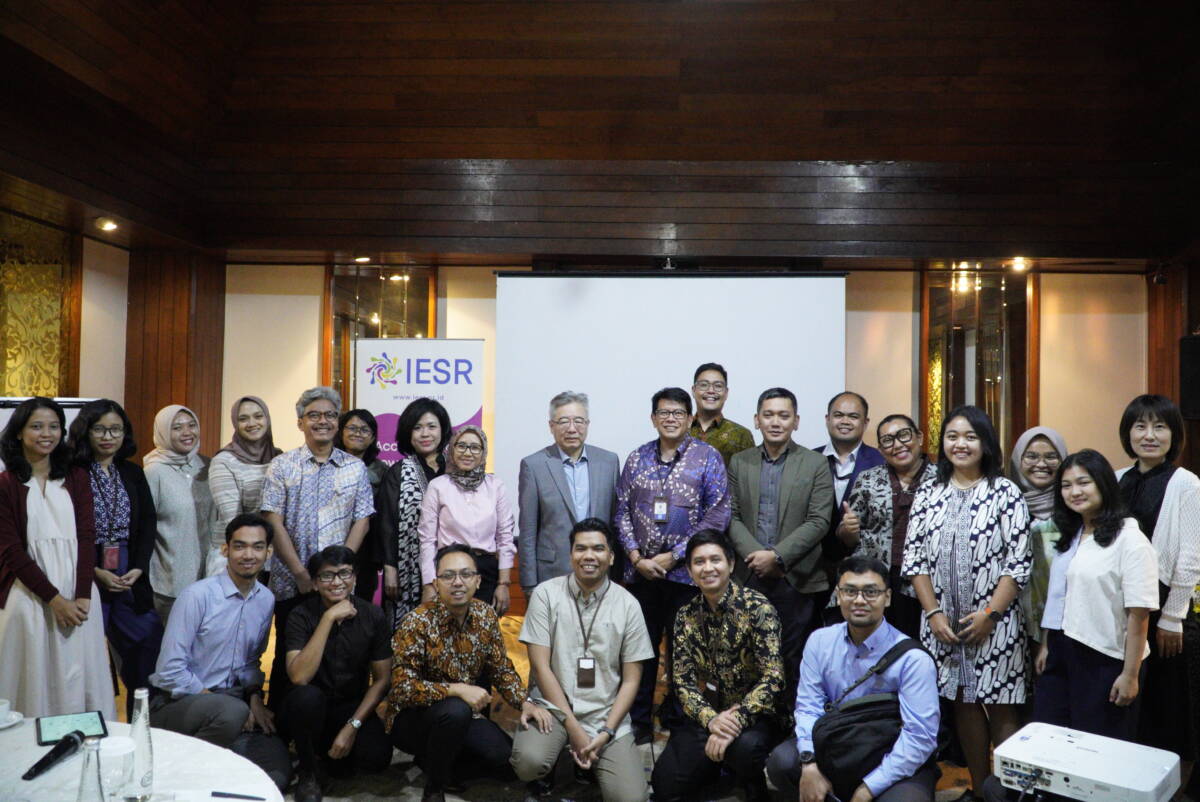Jakarta, October 22, 2024 – Indonesia has officially welcomed a new leader with the inauguration of President Prabowo Subianto and Vice President Gibran Rakabuming Raka, along with the formation of the cabinet on October 21, 2024. A series of tasks awaits the new government, particularly in accelerating Indonesia’s energy transition. This effort aims to prevent the worsening impacts of the climate crisis and attract investment to support the achievement of an eight percent economic growth target. The Institute for Essential Services Reform (IESR) urges President Prabowo Subianto to enhance international cooperation, especially South-South cooperation, to expedite the energy transition and mobilize investments and funding to achieve net zero emissions (NZE) by 2060 or sooner. One promising opportunity lies in strengthening collaboration with China in renewable energy technology and investment, which has already commenced.
According to data from the Central Bureau of Statistics, in 2023, China emerged as the second-largest investor in Asia after Singapore, with an investment value of USD 7.44 billion (approximately Rp 111.6 trillion). Meanwhile, the American Enterprise Institute reports that, specifically in the renewable energy sector, China’s total investment in Indonesia from 2006 to 2022 reached USD 12.6 million (around Rp 18.7 billion). The Institute for Essential Services Reform (IESR) sees potential for increasing Chinese investment to support the development of renewable energy infrastructure in Indonesia.
IESR Executive Director Fabby Tumiwa notes that cooperation with China can be pursued in three main sectors: first, investment in renewable energy infrastructure and energy storage; second, manufacturing and supply chains for renewable energy technology; and third, industrial decarbonization, including the mineral processing industry. This was discussed at the IESR workshop titled “The Energy Transition Workshop: Potential Collaboration between Indonesia and China for Green Development and Clean Energy Cooperation” (21/10) in Jakarta.
Fabby believes that the Prabowo-Gibran government needs to adopt the right strategy to reverse the trend of low investment in the renewable energy sector, which has persisted over the last five years. In 2023, investments in Indonesia’s new renewable energy and energy conservation sector were recorded at only USD 1.5 billion. This amount is still significantly below the total investment required to achieve the Net Zero Emissions (NZE) 2050 target, estimated by IESR to be around USD 1.3 trillion by 2050, or approximately USD 40 to 50 billion per year starting in 2025.
To address this issue, inter-ministerial synergies among the Ministry of Energy and Mineral Resources (MEMR), the Ministry of Investment and Downstream, the Ministry of State-Owned Enterprises (SOEs), National Development Planning Agency (Bappenas), and the Ministry of Foreign Affairs are essential to promote policy harmonization and create an attractive investment climate for businesses and investors.
The government must review policies, regulations, and licensing processes that hinder renewable energy investments from being bankable. Additionally, it needs to prepare a strategic cooperation framework with China focusing on three aspects: investment, clean energy industry supply chain development, and industrial decarbonization, particularly in reducing emissions from captive coal power plants. In the short term, the government can seek concessional funding from China for implementing the Just Energy Transition Partnership (JETP) and the National Electricity General Plan (RUKN), prioritizing national interests and the principle of mutual respect,” Fabby said.
Arief Rosadi, Program Manager of Climate and Energy Diplomacy at IESR, noted that Indonesia and the People’s Republic of China have significant potential to develop energy transition cooperation, which can provide added economic value for both countries. This includes support for developing renewable energy infrastructure in Indonesia and potential access to funding from China.
Energy transition cooperation between Indonesia and China represents a low-hanging fruit. To access sustainable funding from China, both countries need to harmonize their green investment standards for sustainable development. For example, Indonesia has a green taxonomy and sustainable investment guidelines, while China has the Green Investment Principles,” Arief explained.

